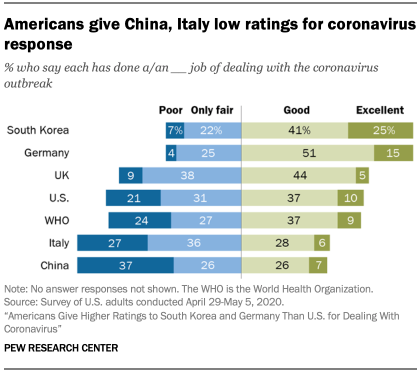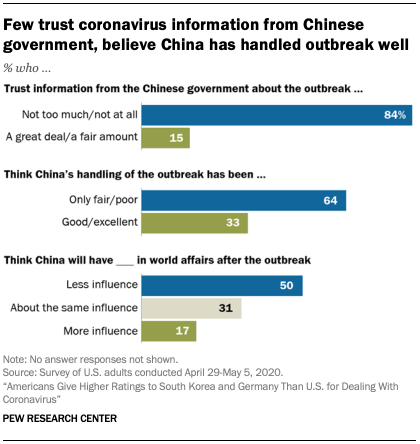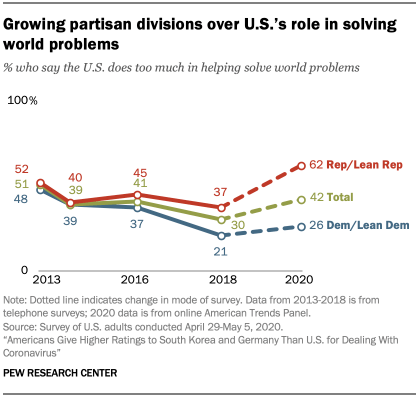Americans Give Higher Ratings to South Korea and Germany Than U.S. for Dealing With Coronavirus

With stunning speed, the COVID-19 pandemic has swept across borders, claiming victims and shutting down economies in nations across the globe. The crisis has generated a variety of policy responses from governments, with varying degrees of success. When asked how well different countries have responded to the outbreak, Americans give high marks to South Korea and Germany. In contrast, most believe China – where the pandemic is believed to have originated – has done an only fair or poor job.

Most are also critical of Italy’s response, while the public is divided over how well the United Kingdom has dealt with COVID-19. Regarding their own country’s reaction, Americans are divided along partisan lines. Overall, 47% of adults say the United States has done a good or excellent job of handling the outbreak, but just 27% of Democrats and Democratic-leaning independents hold that view, compared with 71% of Republicans and Republican-leaning independents.
Americans largely agree the U.S. should look beyond its borders for ideas to combat the coronavirus. Nearly half (46%) say the U.S. can learn a great deal from other countries about ways to slow the spread of the virus, while another 38% say it can learn a fair amount. Few say there is not too much (13%) or nothing at all (3%) the U.S. can learn from other countries.
The leading international organization for dealing with global health issues, the World Health Organization (WHO), draws strongly partisan reactions. While 62% of Democrats believe the agency has done an excellent or good job of dealing with the pandemic, just 28% of Republicans agree. Eight-in-ten Democrats trust coronavirus information from the WHO; only 36% of Republicans do so.













